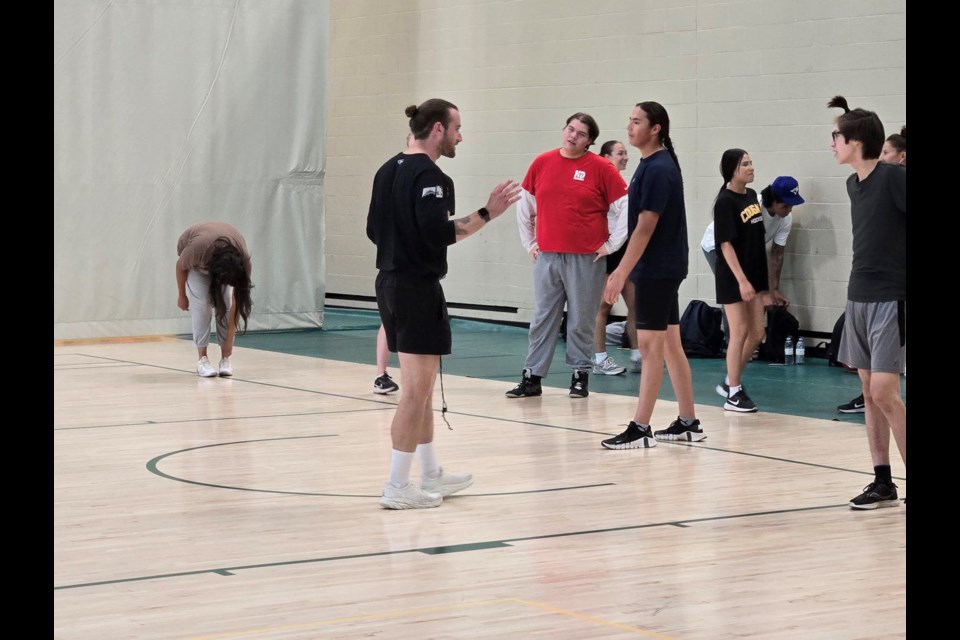REGINA — From Alex Decoteau, Saskatchewan’s first Olympian; to the trailblazing hockey career of Fred Sasakamoose; to current athletes like Brigette Lacquette, the first Indigenous woman on Canada’s Olympic hockey team; there's a rich history of Indigenous athletic success in in the province and a new training camp aims to continue that excellence.
The University of Regina (U of R) in partnership with the File Hills Qu’Appelle Tribal Council (FHQTC) created a new coaching and performance camp, designed to give athletes from the 11 FHQTC First Nations access to top athletic coaching and development.
“I think the biggest thing is creating opportunities in sport and recreation for Indigenous athletes, especially those who don’t have access to these facilities and coaches,” said Jordynn Pewapsconias, KHS Indigenous Student and Youth Engagement intern, and member of Keeseekoose First Nation.
The three-day camp for FHQTC youths wrapped up on Wednesday. The invite-only camp was Ten male and 10 female youths between the ages of 14 and 17 were invited based on athletic success, chosen by coaches from the area.
“We want to introduce them to this world and show them that they belong here (and) that they can do this if they put the work in,” said Pewapsconias.
FHQTC’s sports and recreation department will also offer a camp for young coaches who work in their local communities.
The young athletes and coaches will learn from some of the most experienced experts in the country, including Steve Burrows, U of R Men’s Basketball Head Coach; Mark McConkey, Regina Rams Head Coach; Astrid Baecker, U of R Women’s Soccer Head Coach; Sabrina Nettey, U of R Track and Field Head Coach; as well as individuals from the U of R athletic therapy department to speak on injury prevention; graduate students to speak on nutrition, and current Indigenous and non-Indigenous student-athletes speaking about their experiences.
“One of the goals is to give them these tools so they can share their peers and fellow athletes, back in their home communities,” said Pewapsconias.
The camp was a mixture of classroom content, motivational speakers, and high-performance training. It was designed to involve all aspects needed when one takes athletics to the next level this included activities such as speaking to the public or the media, which is a requirement of most professional athletes.
Whether these young athletes go on to become professionals or stay in their home communities, Pwapsconias said the benefits of dedicating oneself to sport are virtually limitless.
“I grew up playing a lot of sport," she said. "It gave me a sense of purpose, it gave me an outlet, and I think it kept me in school. It even made me realize what I want to get my post-secondary education in,” she said. “It’s such a healthy outlet for youth. That’s my hope for these athletes, is to realize how important sport is in every aspect.”
"I think the content we planned out for it was pretty good," she said after the camp wrapped up. "I think it was really informative for both the coaches and athletes."
Pewapsonias said it was a great experience and the feedback from the athletes and coaches was positive.




